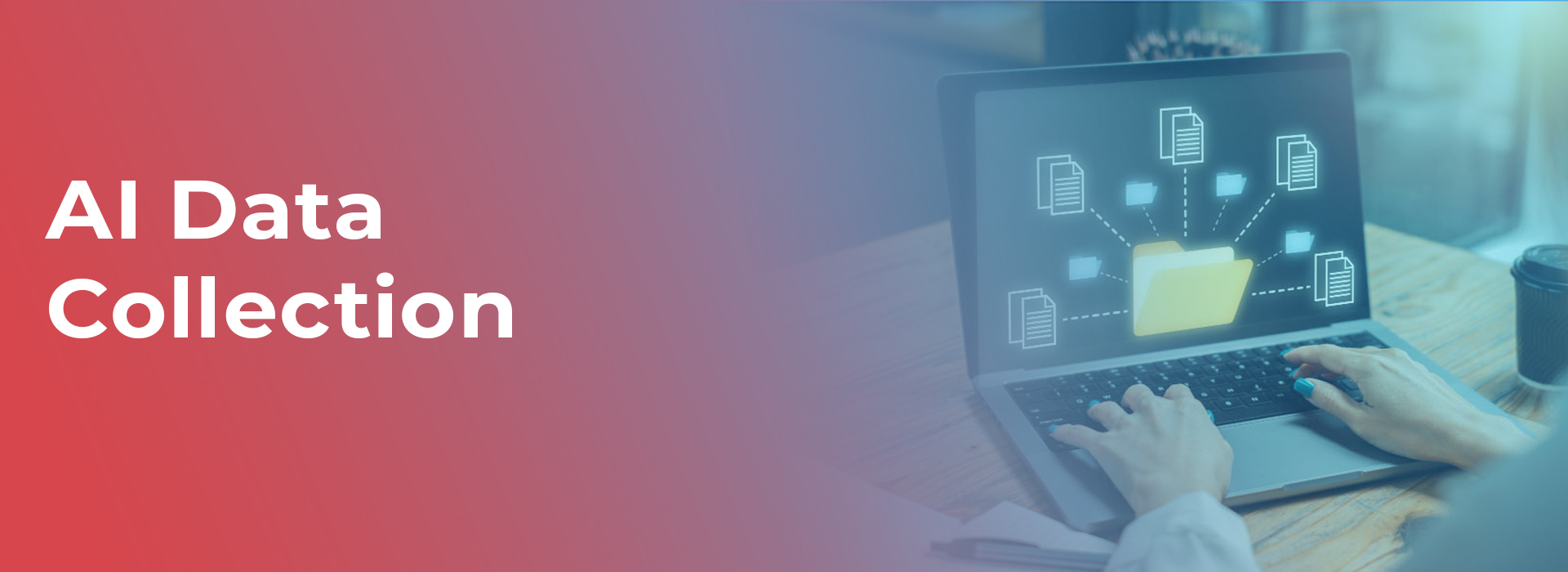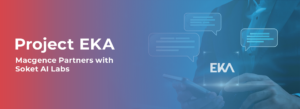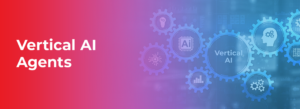The Benefits of AI Data Collection for Businesses
AI Data Collection is one of the most critical aspects of artificial intelligence (AI). Furthermore, this process can be applied efficiently and accurately to human abilities and large data pools. As a result, it entirely transforms customer expectations, increases effectiveness, and improves decision-making. To gain deeper insights, review the article to understand how AI data collection may impact your organization.
What is AI Data Collection?

AI Data Collection is an essential part of the planning process for many modern businesses. It uses information from primary and secondary sources to mitigate risk, thus meeting goals.
However, collecting data from online sources is a lengthy task. Data collection products, such as bots and web scraping, can automate this process quickly. This helps corporations gain valuable insight from large data sets quickly and efficiently.
Moreover, AI-powered data analytics can help businesses make better decisions for improving services and products. Accurate data analysis is vital for success. Thus, companies can use AI systems to collect data and uncover new opportunities efficiently. Consequently, AI systems can assist businesses in creating faster, more valuable options to improve their data handling and drive business decisions.
Why is AI Data Collection Important?
AI Data Collection is essential for training AI algorithms. It provides the raw material into which algorithms base training and is capable of recognizing and helping explain patterns. When trained on a large dataset, an algorithm can identify complex patterns and regard them as fact.
In addition, data collection is also perfectly relevant for developing the new generation of AI models. Without this data, the model won’t work well. The collection of Data is an ongoing process.
New and updated data must be regularly collected to ensure accuracy and keep AI models up to date.
AI-driven data collection is effective. It helps companies identify patterns, findings, and trends they would not have seen otherwise. It also enables them to build upon these discoveries. Businesses use AI-driven collections.
In addition, this data powers more compelling customer experiences and makes access easier. As a result, these improved experiences lead to personalization and service innovations.
Using AI data, organizations can improve their understanding of consumer behavior and develop approaches that meet future needs. AI data can also help anticipate upcoming risks and gains, a crucial consideration in strategic planning.
AI Data Collection can decrease costs and accelerate analysis by automating data acquisition methods. This technology can quickly analyze vast amounts of data for companies to gain new insights. Utilizing AI data can maximize company resources and provide a current or business leader an advantage.
Challenges in Data Collection
Several difficulties must be overcome when gathering data for AI algorithms.
However, the first challenge is data quality. Algorithms using AI can be negatively affected by data of poor quality. Therefore, we must ensure the data we collect is precise and pertinent. Since data may come from multiple sources, it may not always be paired properly.

Another challenge in the collection is data bias. Bias can occur when information representative of the natural world is not used. For example, taking data in one area, demographic, or part of the world can simplify actual conditions. Bias can also occur during data labeling if the labels are subjective rather than objective.
Privacy is an essential consideration in Data Collection for AI. Personal information must be obscured to ensure people’s privacy is not compromised. Data collectors must ensure that the data they’re gathering is protected and that individuals’ privacy is not mislaid.
Gathering data may be regular and expensive. Collecting vast amounts of data can be a time and resource-consuming process. Storing and managing it can also be challenging. These drawbacks can lead to reduced data quality.
How to Overcome These Challenges
To overcome these problems, data collectors have to ensure that they’re using the best practices for data acquisition by AI. Firstly, data collectors should ensure that the collected data represents reality. Data from various sources should be gathered to achieve this, and the data should be diverse.
Data labeling should be objective and supported by facts, not personal opinions. This can be done using objective criteria, like keywords or measurable standards.
Third, vendors must verify that no personally identifiable information is revealed when collecting the data they process. Vendors can protect information security by using encryption or other safeguards.
Fourth, a data collector must endeavor to efficiently assess and ensure high data quality, eliminate errors, and eliminate duplicates. This operation can be successfully automated by utilizing well-defined tools and processes.
Finally, Data collectors should carefully document the data collected and establish the conditions of its collection. Keeping detailed records can help you examine data sources and data collection methods.
Why choose Macgence for AI Data Collection Service
Choosing Macgence for data collection services comes with several benefits. We promise professional skills in data collection and management methods. This enables us to develop customized strategies for that service.
We are committed to delivering high-quality complementary data. This helps to minimize bias in machine learning algorithms trained on the data.
Macgence offers cost-effective AI data collection solutions, and we’re dedicated to giving excellent customer support. Macgence is the best choice for AI Data Collection Services. Our gathering method, insurance coverage, data variety, privacy, efficiency, customer respect, and economics are superior. In summary, these factors make Macgence the clear choice.
You Might Like
February 28, 2025
Project EKA – Driving the Future of AI in India
Spread the loveArtificial Intelligence (AI) has long been heralded as the driving force behind global technological revolutions. But what happens when AI isn’t tailored to the needs of its diverse users? Project EKA is answering that question in India. This groundbreaking initiative aims to redefine the AI landscape, bridging the gap between India’s cultural, linguistic, […]
March 7, 2025
What is Data Annotation? And How Can It Help Build Better AI?
Spread the loveIntroduction In the world of digitalised artificial intelligence (AI) and machine learning (ML), data is the core base of innovation. However, raw data alone is not sufficient to train accurate AI models. That’s why data annotation comes forward to resolve this. It is a fundamental process that helps machines to understand and interpret […]
March 6, 2025
Vertical AI Agents: Redefining Business Efficiency and Innovation
Spread the loveThe pace of industry activity is being altered by the evolution of AI technology. Its most recent advancement represents yet another level in Vertical AI systems. This is a cross discipline form of AI strategy that aims to improve automation in decision making and task optimization by heuristically solving all encompassing problems within […]
March 5, 2025
Use of Insurance Data Annotation Services for AI/ML Models
Spread the loveThe integration of artificial intelligence (AI) and machine learning (ML) is rapidly transforming the insurance industry. In order to build reliable AI/ML models, however, thorough data annotation is necessary. Insurance data annotation is a key step in enabling automated systems to read complex insurance documents, identify fraud, and optimize claim processing. If you […]


 Previous Blog
Previous Blog







